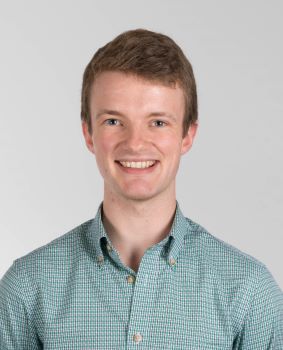Jonathan Stacey (2016 cohort)
 Please provide a brief summary of your PhD project.
Please provide a brief summary of your PhD project.
My PhD looked at ways to tailor the stiffness of thin composite shell structures that could be used in compliant mechanisms, particularly via the use of thermal and mechanical pre-stressing of the material.
Did you choose to continue your XP project as a PhD? Why or why not?
I continued my XP project into a PhD project. The project was really interesting - a good mix of theoretical, computational and experimental work. I also really enjoyed working with my supervisors!
How did the taught component benefit your PhD research?
Some of the most valuable bits of the taught component were learning to do more extensive literature surveys, and learning to effectively present our work. These are hugely helpful skills that made the PhD process possible, and I still rely on them heavily now.
How did the cohort structure benefit your PhD research?
The cohort structure was brilliant because, while my PhD research mainly involved just myself and my supervisors, the cohort meant I had a few close friends (literally) nearby and we could all support each other.
What did you most value about being part of a CDT?
The opportunity to gain exposure to a wide range of people and scientific disciplines. There is a colossal wealth of technical skills and experience in BCI, and the CDT is a great way of sharing as much of that as possible.
What was the 'impact' of your research?
My project was quite blue-sky and low TRL, but it did involve working closely with people in the field of mechanisms and robotics who had not used tailored composite much before. My research was a key part of ongoing work to enable greater uptake of composites in this field.
What was your destination on leaving the CDT?
Higher Research Scientist at the National Physical Laboratory.
What are your main responsibilities?
Mechanical and thermal design of compact laser frequency stabilisation systems for use in space.
Where do you see yourself in five to ten years' time?
Hopefully leading the design and manufacture of complex mechanical systems, and being able to mentor and support others in learning to do so.
How have the skills and knowledge you acquired during your time in the CDT helped develop your career?
Technically, my knowledge of complex numerical analysis methods was boosted hugely by my time in the CDT, and I feel far more confident in designing and making mechanical systems now. But I think more importantly, the CDT gave me the opportunities and confidence to learn how to start from scratch and become an expert in a field. It also taught me how to make the most of the expert support around me, and have confidence in giving support to others.
